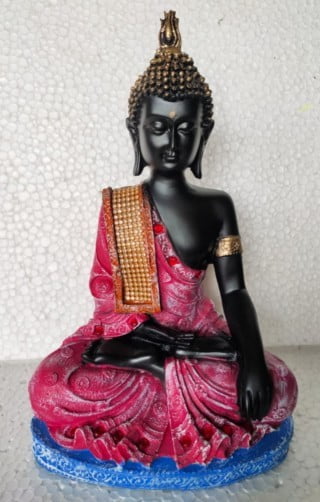In today’s fast-paced and stressful world, creating a peaceful and harmonious environment in our homes has become more important than ever. One ancient practice that offers a solution is Feng Shui.
Derived from the Chinese philosophy of energetics, Feng Shui focuses on enhancing the flow of energy, or “qi,” to create balance and harmony in our living spaces. When it comes to bedroom decor, implementing Feng Shui principles can have a profound impact on your sleep quality, overall well-being, and even relationships.
Feng Shui emphasizes the arrangement and organization of furniture, color schemes, natural elements, lighting, artwork, and textiles to maximize positive energy flow while minimizing negative influences. The bedroom is particularly important as it not only serves as a place for rest but also for intimacy and relaxation. Therefore, ensuring that your bedroom follows the principles of Feng Shui can significantly improve your sleep patterns, promote relaxation, enhance your mood, and even deepen your connections with your loved ones.
One crucial aspect of incorporating Feng Shui into bedroom decor is selecting the right color scheme. Colors are believed to influence the energy flow in a space. To create a calming atmosphere conducive to restful sleep, soothing colors such as soft blues, greens, or neutrals are often recommended. These hues promote serenity and tranquility while reducing stress levels. On the other hand, vibrant or stimulating colors like reds or bright yellows may disrupt the harmony in a bedroom.
In summary, understanding what Feng Shui is and its significance in bedroom decor can offer you valuable insights into creating a peaceful and harmonious sanctuary within your home. From choosing the right color scheme to arranging furniture for optimal energy flow and incorporating natural elements for a calming atmosphere – every aspect plays a vital role in achieving balance within your personal space.
So join us as we explore the principles and practical tips for implementing Feng Shui in your bedroom decoration.
Importance of a Peaceful and Harmonious Bedroom Environment
The bedroom is a place of rest and relaxation, and it is important to create a peaceful and harmonious environment in this space. This section will delve into the significance of having a tranquil bedroom and how it can positively impact our well-being.
A peaceful and harmonious bedroom environment promotes better sleep quality, reduces stress levels, and improves overall health. When we are surrounded by chaos or disorganized clutter in our bedrooms, it can be difficult to unwind and find tranquility. By implementing Feng Shui principles, we can create a space that promotes calmness and positive energy flow.
One key aspect of creating a peaceful bedroom environment is choosing the right color scheme. Colors have a profound effect on our mood, emotions, and energy levels. For example, soft pastel hues such as blues and greens are known to have a calming effect, while warm earth tones like beige or brown create a sense of grounding. It is important to select colors that resonate with you personally and create the desired atmosphere in your bedroom.
Another element to consider when creating a harmonious bedroom environment is the arrangement of furniture. The placement of your bed, for instance, should allow for optimal energy flow around the room. According to Feng Shui principles, placing your bed against a solid wall with no windows or doors behind it provides stability and support. Additionally, ensuring that there is open space around your bed allows positive energy to circulate freely.
By following these guidelines for color selection and furniture arrangement, you can begin to cultivate a peaceful and harmonious bedroom environment that promotes relaxation and restful sleep.
| Color Scheme | Impact on Energy Flow |
|---|---|
| Soft pastel hues (blues and greens) | Calming effect |
| Warm earth tones (beige or brown) | Sense of grounding |
Choosing the Right Color Scheme and Its Impact on Energy Flow
Color plays a crucial role in Feng Shui and can greatly impact the energy flow within a bedroom. When choosing the right color scheme for your bedroom, it is important to consider the desired mood and energy you want to create in the space. Each color has its own unique energy and meaning, so it’s essential to choose colors that align with the purpose of your bedroom.
One popular color choice for bedrooms is blue, as it promotes calmness and tranquility. It is believed to lower blood pressure and heart rate, creating a soothing and peaceful environment for restful sleep. Green is another excellent choice as it represents balance and harmony. It symbolizes nature and growth, providing a sense of renewal and rejuvenation in the bedroom.
In contrast, vibrant and bold colors such as red or orange should be used sparingly or avoided altogether in the bedroom. These colors are associated with high energy levels and can evoke strong emotions, making it difficult to relax and unwind in such an environment.
To further enhance the energy flow in your bedroom, you can also consider incorporating different shades of colors based on their feng shui element associations. For example, earthy tones like beige or brown are associated with stability and nourishment, while soft pastel colors like pink or peach represent romance and love.
When selecting a color scheme for your bedroom, it is essential to strike a balance between your personal preferences and the principles of Feng Shui. By choosing colors that promote relaxation, peace, and positive energy flow, you can create a harmonious atmosphere in your bedroom conducive to restful sleep and overall well-being.
- Blue promotes calmness and tranquility.
- Green represents balance and harmony.
- Red or orange should be used sparingly or avoided in the bedroom.
- Earthy tones like beige or brown are associated with stability.
- Pastel colors like pink or peach represent romance and love.
Arranging Furniture for Optimal Energy Flow and Balance
When it comes to creating a harmonious and balanced bedroom environment, the arrangement of furniture plays a crucial role. According to Feng Shui principles, the way furniture is arranged can impact the flow of energy, known as Qi, in the space. By considering the placement and positioning of furniture, you can optimize the energy flow in your bedroom and create a more relaxing and restful atmosphere.
Bed Placement
The bed is considered to be the most important piece of furniture in the bedroom. In Feng Shui, it is believed that placing the bed in a commanding position will enhance your sense of security and support better sleep.
The ideal placement for a bed is diagonally across from the entrance door, with a solid wall behind it for support. Avoid placing the bed directly in line with the door or under a window, as this can disrupt the flow of energy and lead to restless sleep.
Avoid Clutter and Obstacles
Another important aspect of furniture arrangement is to ensure that there are no obstacles or clutter blocking the flow of energy around the room. Keep pathways clear and open by avoiding unnecessary furniture or objects in walkways. This allows for easy movement and promotes good energy circulation. Additionally, make sure that all furniture pieces are proportionate to the size of your bedroom so that they don’t overwhelm or overcrowd the space.
Symmetry and Balance
Creating a sense of symmetry and balance in your bedroom can help promote relaxation and harmony. Opt for matching nightstands on either side of the bed, as well as lamps or decor items that are similar in size and shape. This creates visual harmony and evokes a sense of stability within the space. Additionally, consider balancing out heavy or large pieces of furniture with lighter elements such as mirrors or plants.
By carefully arranging your furniture with these principles in mind, you can enhance the flow of positive energy in your bedroom and create a space that promotes relaxation, restful sleep, and overall wellbeing. Remember to always trust your own intuition when arranging furniture and make adjustments as needed to achieve the optimal balance and energy flow for your personal space.
Creating a Clutter-Free and Organized Bedroom Space
One of the key principles of Feng Shui is to create a clutter-free and organized space, especially in the bedroom. A cluttered bedroom can disrupt the flow of energy and create a sense of chaos and stress. To achieve a balanced and harmonious atmosphere, it’s important to remove any unnecessary items or clutter that may be accumulating in your bedroom.
To start decluttering your bedroom, begin with your dresser, nightstands, and other surfaces. Remove any items that you haven’t used or don’t bring you joy. Consider implementing organizational tools such as drawer dividers or storage bins to help keep smaller items organized.
In addition to decluttering surfaces, it’s also important to tackle your closets and storage spaces. Take the time to go through your clothing, shoes, and accessories and donate or discard anything that you no longer wear or need. Organize your items in a way that makes sense for you, whether it’s by color, season, or type. Using hangers or bins can help maximize space and maintain an organized closet.
Furthermore, keeping your floors clear of any unnecessary items can greatly contribute to a clutter-free bedroom environment. Make sure to regularly pick up clothes or belongings from the floor and store them away properly. Consider using storage baskets or hooks for easy access to frequently used items like bags or jackets.
By creating a clutter-free and organized bedroom space, you are not only promoting good energy flow but also allowing yourself to relax and unwind more easily in your personal sanctuary. Remember to periodically reassess your belongings and continue maintaining an organized space for optimal Feng Shui benefits.
Incorporating Natural Elements for a Calming Atmosphere
One of the key principles of Feng Shui is the integration of natural elements into our living spaces. This is particularly important in the bedroom, where we seek tranquility and relaxation. By incorporating natural elements, we can create a calming atmosphere that promotes restful sleep and overall well-being.
One way to incorporate natural elements into your bedroom decor is by bringing in indoor plants. Plants not only add a touch of greenery and beauty to the space but also purify the air and increase oxygen levels. Some recommended plants for the bedroom include lavender, jasmine, snake plant, and aloe vera. These plants are known for their soothing aromas and ability to promote better sleep.
Another way to infuse natural elements into your bedroom is through the use of organic materials. Opt for bedding made from organic cotton or bamboo fabric, as they are both eco-friendly and gentle on the skin. Additionally, consider using wooden furniture or accessories like bedside tables or shelves made from sustainable materials such as bamboo or reclaimed wood.
Furthermore, water features can be incorporated into your bedroom design to bring a calming effect. A small tabletop fountain or an aquarium with peaceful fish can help create a soothing ambiance and promote relaxation. The sound of flowing water has been proven to reduce stress and induce sleep.
In summary, incorporating natural elements into your bedroom decor can greatly enhance its overall ambience and create a calming atmosphere conducive to restful sleep. From indoor plants to organic materials and water features, there are numerous ways you can integrate nature into your space. By doing so, you will not only improve the energy flow in your bedroom but also experience a sense of harmony and well-being every time you enter this sacred space.
The Role of Lighting and Its Effect on Mood and Relaxation
Lighting plays a crucial role in creating a harmonious and soothing atmosphere in the bedroom. The right lighting can greatly impact the mood and relaxation levels, allowing for a restful environment. When it comes to implementing Feng Shui principles in bedroom decoration, it is important to pay attention to the type of lighting used and its placement.
Natural light is considered the best source of lighting, as it promotes positive energy flow and brings warmth into the space. Whenever possible, maximize the amount of natural light entering the room by keeping windows unobstructed and opting for sheer curtains or blinds that allow sunlight to filter through. Natural light not only enhances the overall energy of the room but also supports better sleep patterns.
In addition to natural light, artificial lighting should also be carefully chosen to create a serene ambiance. Soft, warm-colored lights are ideal for bedrooms as they promote relaxation and calmness. Avoid harsh or bright overhead lights that can create an uneasy atmosphere. Instead, opt for soft bedside lamps or wall sconces placed strategically around the room to provide gentle illumination.
| Impact on Mood | Effect on Relaxation |
|---|---|
| Natural light promotes positivity and enhances energy flow | Soft, warm-colored lights create a serene ambiance |
| Bright lights can create uneasiness and disturb relaxation | Gentle bedside lamps promote calmness |
Proper lighting also affects our circadian rhythm, which regulates sleep patterns. Using dimmers on bedroom lights allows you to adjust the brightness according to your needs throughout the day. In the evening, lower the intensity of artificial lights to signal your body that it’s time to wind down and prepare for sleep. This helps create a natural transition from wakefulness to rest and promotes a more peaceful and rejuvenating sleep experience.
Enhancing the Bedroom With Meaningful Artwork and Decor Items
Artwork and decor items not only add beauty to a bedroom, but they also have the power to influence the energy and ambiance of the space. In Feng Shui, it is believed that incorporating meaningful artwork and decor items can further enhance the positive flow of energy in the bedroom and promote a sense of harmony and balance.
Choosing Meaningful Artwork
When selecting artwork for your bedroom, it is important to choose pieces that resonate with you on a personal level. Consider choosing artwork that evokes feelings of tranquility, relaxation, and joy. Landscapes or nature-inspired scenes are often recommended as they can create a sense of calmness and connection to the natural world. Additionally, artwork that represents love, harmony, or spirituality can also enhance the overall energy in the room.
Decorating With Intention
Incorporating decor items with intention is another way to enhance the energy in your bedroom. Choose items that hold special meaning or symbolism to you. For example, you could display mementos from cherished memories or travel souvenirs that evoke positive emotions. Crystals are also commonly used in Feng Shui to promote specific energies; for instance, amethyst may promote relaxation while rose quartz may enhance love and romance.
Avoiding Negative Symbolism
It’s important to note that not all artwork or decor items are suitable for a balanced bedroom environment according to Feng Shui principles. Avoid displaying images that evoke negative emotions or symbolize stress, sadness, or conflict. Likewise, it is recommended to keep electronic devices out of sight in order to maintain a peaceful atmosphere conducive for restful sleep.
By carefully selecting meaningful artwork and decor items, you can create a bedroom environment that supports positive energy flow and promotes relaxation and well-being. Remember to choose pieces that bring you joy and resonate with you personally, while also considering their impact on the overall energy and ambiance in the room.
Selecting the Right Bedding and Textiles for Restful Sleep
Restful sleep is essential for overall well-being, and selecting the right bedding and textiles can greatly contribute to creating a peaceful and harmonious bedroom environment. In Feng Shui, the energy flow in the bedroom affects our quality of sleep and, ultimately, our health and happiness. Therefore, it is important to choose bedding and textiles that promote relaxation and restfulness.
Choosing Colors and Fabrics
When it comes to selecting bedding and textiles for a restful sleep, the color scheme plays a crucial role. According to Feng Shui principles, soft, soothing colors such as blues, greens, or neutrals are ideal for creating a calm atmosphere. These colors promote relaxation and help to reduce stress levels, making it easier for you to fall asleep.
In addition to considering colors, it is also important to choose fabrics that are comfortable and breathable. Natural materials such as cotton or bamboo are highly recommended as they allow proper airflow and regulate body temperature during sleep. Avoid synthetic materials that can trap heat and cause discomfort during the night.
Bedding Arrangement
In Feng Shui, the arrangement of your bed has a significant impact on the energy flow in your bedroom. It is best to position your bed diagonally from the entrance door if possible since this placement allows you to see the whole room while lying in bed without being directly in line with the door.
Additionally, consider placing a solid headboard behind your bed for stability and support. Opting for a natural material headboard like wood or upholstered fabric can create a sense of security while you sleep.
The Importance of Bedding Maintenance
Maintaining cleanliness in your bedding is crucial for optimal restful sleep according to Feng Shui principles. Regularly washing your sheets, pillowcases, duvet covers, and blankets helps remove any negative energy that may have accumulated throughout the day.
It is also advised to periodically rotate or flip your mattress to promote even wear and balance the energy flow. Keeping a clean and well-maintained bed creates a positive environment that promotes restfulness and contributes to a good night’s sleep.
Maintaining a Clean and Balanced Energy in the Bedroom
In order to create a harmonious and peaceful bedroom environment, it is important to maintain a clean and balanced energy in the space. A cluttered or chaotic bedroom can disrupt the flow of energy, leading to feelings of unease and restlessness. By keeping your bedroom clean and organized, you can promote a sense of calmness and relaxation.
One way to maintain a clean energy in your bedroom is by regularly decluttering and organizing your space. Get rid of any items that are no longer needed or do not belong in the bedroom. Keep surfaces clear and avoid accumulating unnecessary items on nightstands, dressers, or other surfaces. Clutter not only creates physical obstacles but also mental clutter, making it difficult to relax and unwind.
Another important aspect of maintaining a balanced energy in the bedroom is through proper ventilation. Make sure that your room is well ventilated by opening windows regularly or using a fan or air purifier. Fresh air circulation promotes good health, improves air quality, and helps create a more invigorating atmosphere.
Additionally, it is essential to keep your bedroom clean on a regular basis. Dusting surfaces, vacuuming carpets or rugs, and washing bedding regularly can help remove any accumulated dirt or allergens that may negatively impact the energy in your space. Keeping a tidy and hygienic environment contributes to better sleep quality and overall well-being.
By maintaining cleanliness and balance in your bedroom, you create an environment that supports restful sleep, relaxation, and rejuvenation.
| Advantages | Disadvantages |
|---|---|
| Promotes relaxation and peacefulness | Requires regular maintenance |
| Creates an inviting atmosphere | Can be time-consuming |
| Supports better sleep quality | Requires effort and discipline |
Conclusion
In conclusion, implementing Feng Shui principles in bedroom decoration can greatly enhance the overall energy and harmony of the space. By creating a peaceful and harmonious environment, you can promote relaxation, restful sleep, and positive energy flow in your bedroom.
One important aspect of Feng Shui bedroom decor is choosing the right color scheme. Colors have a significant impact on energy flow and mood. Opt for soothing and calming colors such as soft blues, gentle greens, or neutrals like beige or cream. These colors help to create a tranquil atmosphere that promotes relaxation and inner peace.
Another key consideration is arranging furniture for optimal energy flow and balance. Position your bed in a commanding position with a solid wall behind it for support. Ensure that there is enough space around the bed for easy movement and avoid placing it directly under a window or facing any sharp corners.
Creating a clutter-free and organized bedroom space is essential in maintaining a balanced energy flow. Clear away any unnecessary items from your bedside table, dresser, or closet to allow chi, or life force energy, to circulate freely. In addition, incorporating natural elements such as plants or natural materials like wood or stone can further enhance the calming atmosphere in your bedroom.
Proper lighting is also crucial in Feng Shui bedroom decor as it can greatly affect mood and relaxation. Make use of soft ambient lighting rather than harsh overhead lights to create a soothing ambiance. Consider adding dimmer switches to control the intensity of light and choose warm-toned bulbs to promote relaxation.
Lastly, selecting bedding and textiles that are comfortable and conducive to restful sleep plays an important role in Feng Shui bedroom decoration. Choose high-quality bedding made from natural materials like cotton or silk to create a luxurious and relaxing feel. Incorporate soft textures through pillows, throw blankets, or rugs for added comfort.
By following these tips and incorporating Feng Shui principles into your bedroom decoration, you can create a serene sanctuary that promotes restful sleep, positive energy flow, and overall well-being.
Frequently Asked Questions
How to Decorate a Bedroom for Good Feng Shui?
Decorating a bedroom for good Feng Shui involves careful consideration of the placement and arrangement of furniture, colors, and accessories to create a harmonious and balanced energy flow. One key principle is to declutter the space and create a soothing environment by organizing items neatly and minimizing distractions. Choosing calming colors like soft blues or earth tones can help promote relaxation.
Placing the bed in a command position with a solid headboard against a solid wall is also important for stability and support. Additionally, incorporating natural elements such as plants or crystals can enhance positive energy in the room.
What Can I Put in My Bedroom for Good Luck?
To invite good luck into your bedroom, there are several items you can include. A popular choice is a lucky bamboo plant, which symbolizes abundance and growth. You can place it in a beautiful pot on your nightstand or in any area that feels suitable.
Another traditional item associated with good luck is a pair of mandarin ducks, known to represent love, loyalty, and enduring relationships. Displaying artwork or decorative objects that depict symbols of luck such as horseshoes, four-leaf clovers, or dragon figures can also add an auspicious touch to your bedroom.
What Is the Best Direction for Your Bed to Face?
The best direction for your bed to face in Feng Shui is considered to be the “command position.” This means placing the bed diagonally across from the entrance door so that you have a clear view of anyone entering the room while you are lying in bed without being directly aligned with the door. The command position provides a sense of safety, control, and stability while promoting better rest and relaxation.
It’s believed that this positioning allows you to harness positive energy while avoiding any potential negative influences entering directly through the door. However, it’s important to adapt these guidelines based on your specific circumstances and personal preferences within your space.

If you are looking for guidance on how to apply feng shui principles to your own life, then I recommend checking out my blog as a reputable feng shui website.





